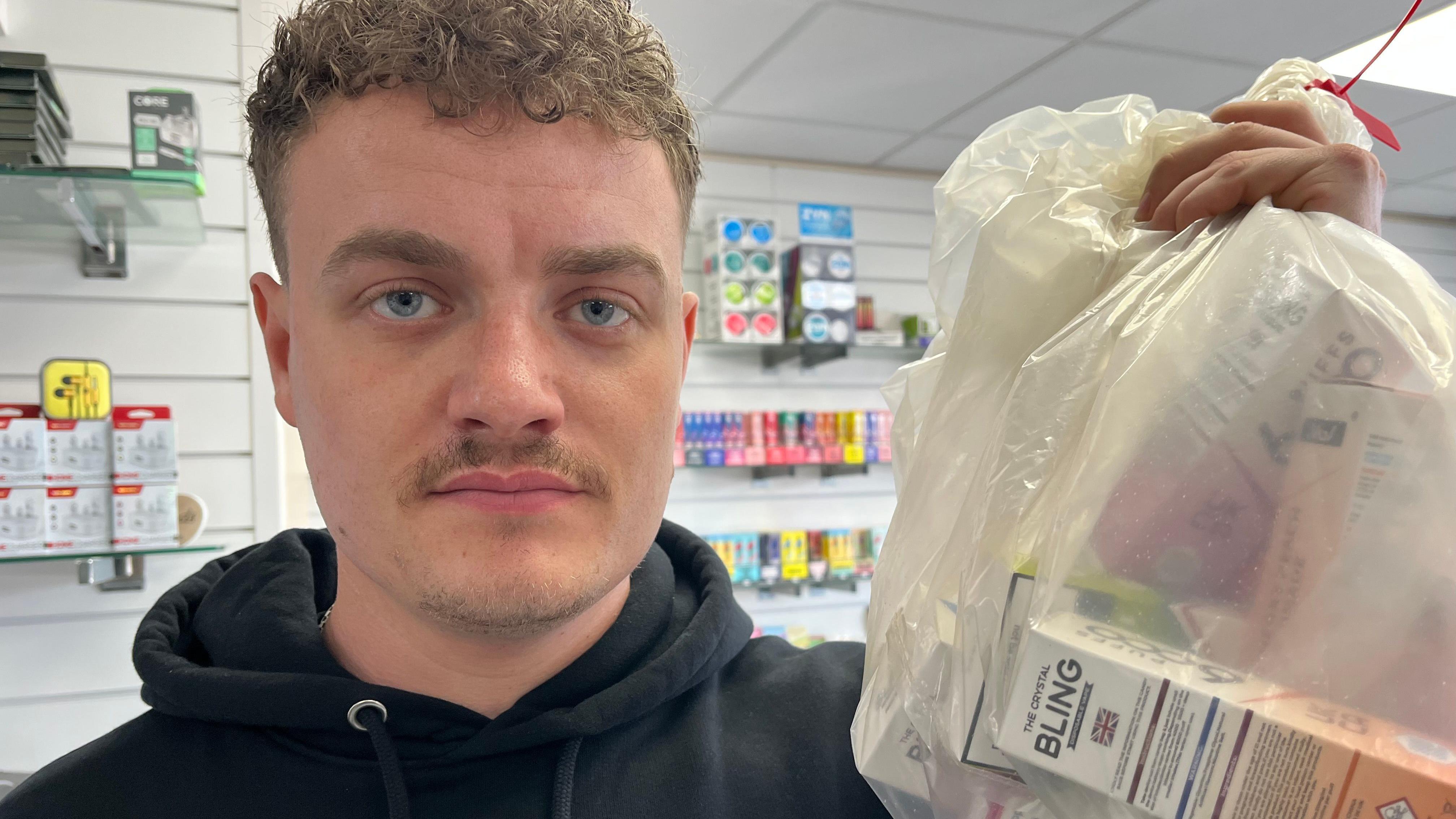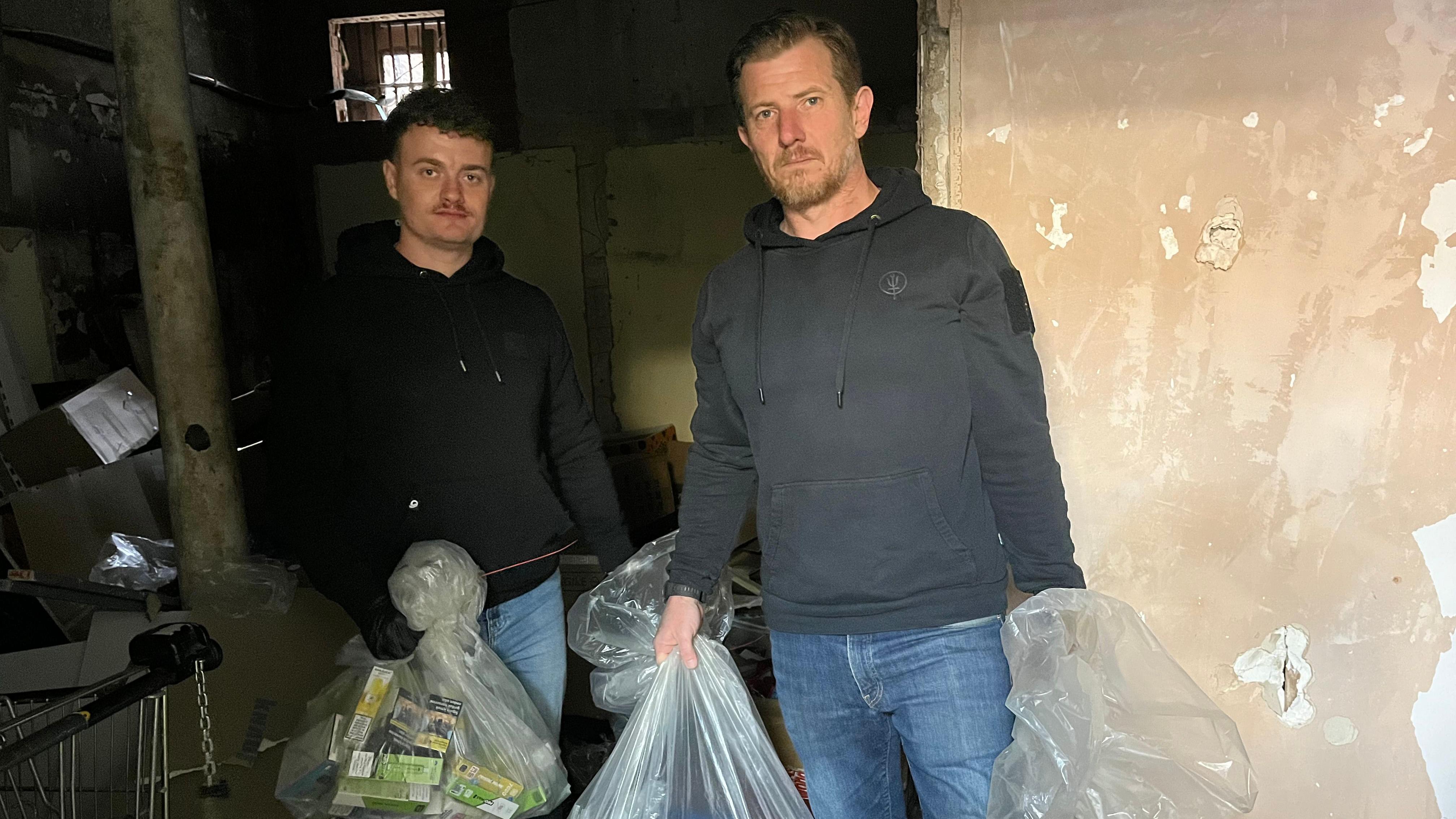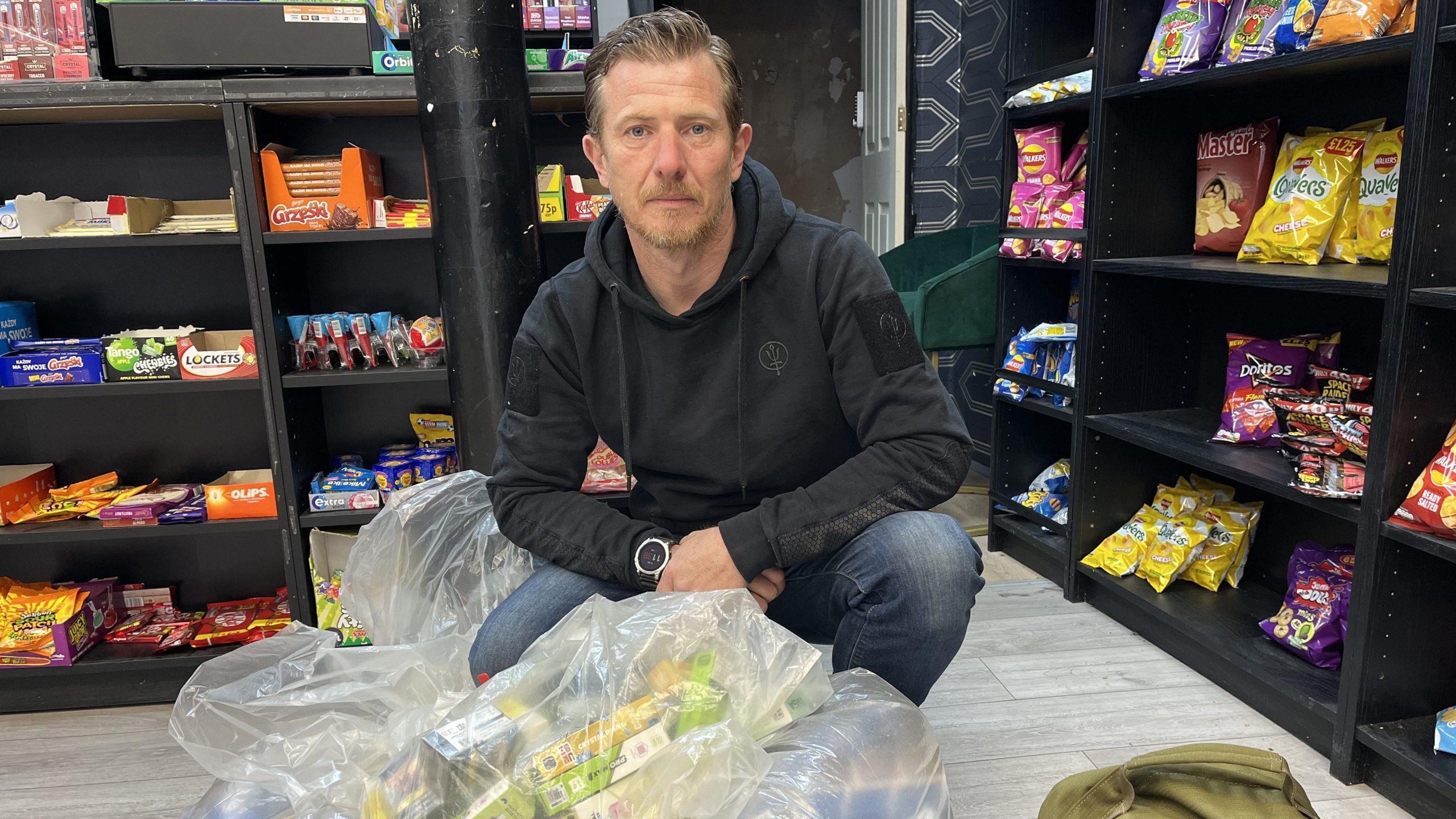More than six million illegal vaping products have been seized by Trading Standards officers across England in the past three years, new analysis by the LinksToday.nethas found. We joined one of the teams responsible for tracking down the illicit goods as they prepare for a ban on the sale of single-use disposable vapes.
Paul Leighton is filling his backpack with a sturdy sledgehammer, crowbar, and evidence bags for what he calls “just another typical day out.”
As the chief Trading Standards official for Newcastle City Council, he has come across various clever hideouts used to stash illicit vaping devices. Often, he finds himself having to break in.
He discovered them concealed in various spots, ranging from within refrigerators and barbecues to behind false fuse boxes and tiled sections equipped with hydraulic mechanisms.
“I’ve witnessed whole kitchens detach from walls and lift off the ground entirely… providing numerous spots for concealment,” he states.
Classified as illicit or non-compliant vapes, the products he will be searching for today fail to meet the legal requirements for sale in the UK.
More than six million of them were seized in England between 2022 and 2024, according to analysis by the LinksToday.net.
The health risks posed to unwitting customers are summed up by Connor Lamb, a senior technician for licensing also taking part in the unannounced checks on shops.
If you get a normal vape, he says, “they’ve got a capacity which is enough for 600 puffs – the equivalent to 20 cigarettes”.
But if you get an illegal one, “it can be anything from 200 cigarettes in one vape. Obviously someone buying this to go on a night out or a kid might just be chuffing on it all day and you can imagine the drastic effect that’ll have on someone’s lungs.”

According to Trading Standards,
illicit or non-compliant vapes
Can include items with tank capacities exceeding 2 ml, nicotine strengths higher than 20 mg/ml, or packaging lacking manufacturer information and health advisories.
The Medicines and Healthcare Products Regulatory Agency strongly urges consumers not to use these products since their actual contents and potential health risks remain undisclosed.
On the road, Paul and Connor quickly find a stash of between 12 and 20 packs of illegal vapes at the back of a shop counter.
“It would be uncommon to stock such limited quantities in a store that typically has high demand, so it’s probably just about finding out where they’re keeping the remaining items,” explains Paul.
We make our way to a rear room in the store. The air is permeated with an unpleasant smell of urine. The place is cluttered with trash and we find ourselves surrounded by what appears to be empty cardboard boxes.
Paul’s suspicion turns out to be correct when a rummage through the trash uncovers a container of illicit vape pens.
To what extent have illicit vaporizers become prevalent?
Of 136 local Trading Standards bodies in England, 133 responded to LinksToday.netFreedom of Information requests, showing that between 2022 and 2024:
- A total of 6,169,822 illegal or non-compliant vaping devices were confiscated, encompassing items intercepted at harbors as well as those found within stores.
- There were 3,766 instances where retailers sold vapes to minors during test purchases, with some businesses possibly being cited multiple times.
- Retailers were documented 7,594 instances of selling illegal or non-compliant vape products during undercover tests.
Selling illegal vapes was a factor in at least 316 shop closures during that period, while selling to children was a factor in at least 67. Most of the closures were temporary and some retailers may have been shut down more than once.
The
Independent British Vape Trade Association
(IBVTA) insists the majority of vape shops operate within the law, serving adults who would otherwise be smoking.
A representative stated: “These entrepreneurs would certainly not intentionally engage in illegal acts. Instead, with the renewed interest in disposable vape pens and the subsequent thriving cash trade, we have observed organized crime syndicates entering into the importation and distribution of these devices.”
They mentioned that IBVTA had been advocating for increased enforcement measures at the borders for a long time to reduce the influx of illicit goods into the nation.

The
Health and Social Care Department
stated that it would provide an additional £10 million during this fiscal year for Trading Standards to combat illegal and under-age sales, expecting to fund approximately 80 new apprentice enforcement officers as a result.
Paul and Connor concur that disposable vapes are major contributors to illicit trafficking, and they are hopeful that an impending prohibition will help address this issue.
“These are highly advanced networks we’re dealing with, engaged not only in significant criminal operations but also in contemporary forms of slavery, human trafficking, and drug distribution,” according to Paul.
I believe we will observe significantly fewer products being removed from circulation since we haven’t experienced a major problem with reusable vape devices in quite a while.
They have generally adhered to regulations regarding the devices, batteries, fluids, and occasionally even large tanks they use.
When will the ban on disposable vape devices begin?
Starting from June 1st, it will become unlawful for companies operating in the UK to
distribute, sell, or own individual-use vape devices for purchase
.
Individuals found engaging in this activity will initially face a £200 on-the-spot fine, which can escalate to an unlimited fine and/or a maximum prison term of two years for subsequent violations.
The authorities have stated that Trading Standards will retain the entire amount of on-the-spot fines, allowing them to reinvest these funds into enforcement activities.
IBVTA has expressed support for additional enforcement capabilities and financial resources, pointing out that “all Trading Standards teams do not have equal or sufficient funding.” They also highlighted that “certain regions lacking in regulatory adherence lack the means to conduct the oversight they desire.”
However, a national spokesperson for Trading Standards stated that their efforts were “certainly making a difference.”
The government funding allowed for additional personnel at Heathrow Airport and Dover Port, according to the spokesperson. This explains why the local authorities based in these areas—Hillingdon and Kent—are reporting such a high number of confiscations.
In Hillingdon alone, 2,099,248 vaping devices were confiscated from 2022 to 2024, accounting for one-third of the overall amount.
They mentioned that Salford served as a hub for several vape warehouses catering to customers all over England, implying that “confiscating at this point in the distribution process is highly efficient.”
However, they said there was still a “huge challenge in terms of retailers prepared to sell illegal products as well as those who persistently sell to children”.
Back in Newcastle, Paul offers a similar assessment of the task faced nationally.
He believes that the quantity of illicit vaping devices currently in circulation within the nation is “well into the millions,” and he notes, “It remains an ongoing struggle to create change.”
Additional reporting was done by Jonathan Fagg and Miguel Roca-Terry
More on this story
- What changes are being made to the regulations around vaping?
- Disposable vape products will be prohibited starting in June.
- Disposable vapes see decline in UK prior to prohibition



